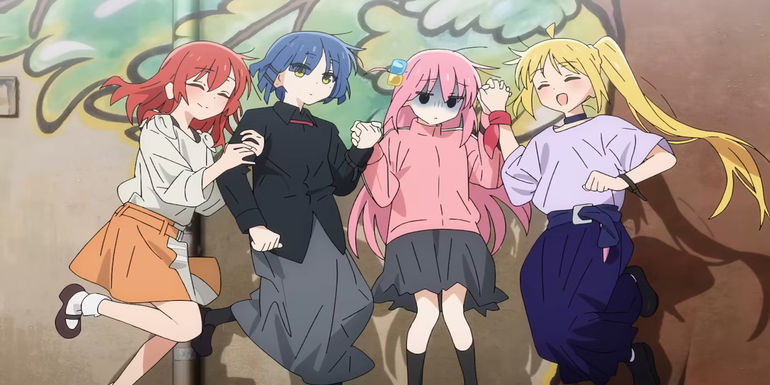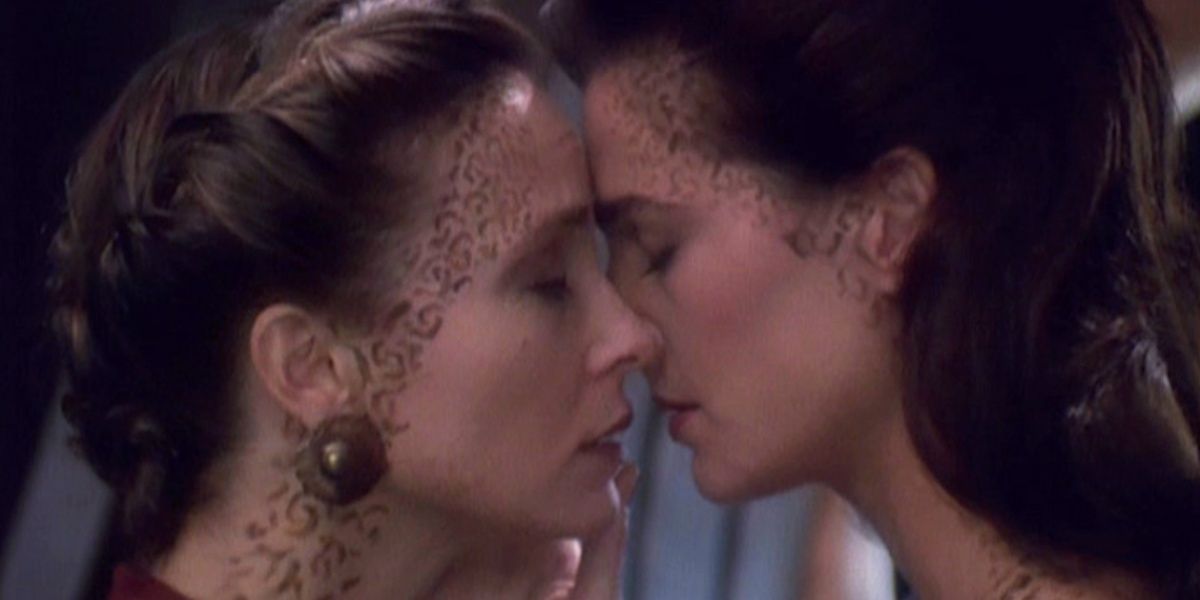
The LGBTQ+ Representation in Bocchi the Rock!

An analysis of the positive LGBTQ+ representation in Bocchi the Rock! and its impact on mainstream media.
Bocchi the Rock! and Its Impact
Bocchi the Rock! has made waves in the anime world, not only for its captivating storyline and stunning visuals but also for its remarkable positive LGBTQ+ representation. Despite its understated debut, the anime quickly rose to prominence, becoming a critical and commercial success in 2022. One of the standout aspects of the anime is its portrayal of LGBTQ+ characters, which has garnered significant attention and acclaim.
Bocchi the Rock! - Kessoku Band making a peace sign in front of their instruments
The anime's thoughtful exploration of social anxiety, coupled with its visually striking imagery, has captivated audiences and critics alike. However, one of the lesser-known factors contributing to the show's success is its role as a trailblazer in LGBTQ+ representation, setting a new standard for inclusivity in mainstream media.
Bocchi being confirmed to like girls
While Bocchi the Rock! is not explicitly categorized as a yuri or girls' love series, it subtly and effectively presents positive LGBTQ+ representation through its character portrayals. The manga adaptation further enriches this representation, solidifying the series' impact on inclusivity and diversity in anime and manga.
Bocchi the Rock! - Kessoku Band playing with stage lights in the background
Exploring LGBTQ+ Representation in Bocchi the Rock!
The LGBTQ+ representation in Bocchi the Rock! is subtly interwoven into the narrative, with several characters exhibiting diverse sexual orientations. Kita's romantic interest in Ryo, along with her unwavering dedication to impressing Ryo through her guitar skills, provides a compelling portrayal of LGBTQ+ dynamics within the storyline. Additionally, Ryo's playful suggestion of engaging in romantic encounters with women to emulate rock stars, and Bocchi's response to this suggestion, further reinforces the casual yet impactful representation of LGBTQ+ characters.
Bocchi and Kita
The manga adaptation of Bocchi the Rock! delves even deeper into the explicit LGBTQ+ representation, shedding light on the characters' romantic inclinations and relationships. Chapter #66 unveils Kita's profound admiration for Bocchi, reshaping their relationship dynamics. Furthermore, the manga unequivocally establishes Bocchi's attraction to girls, offering poignant insights into her romantic aspirations and desires. This explicit portrayal of LGBTQ+ characters in the series serves as a compelling testament to its commitment to positive representation and inclusivity in media.
Bocchi the Rock! - Kessoku Band posing for a poster in front of a graffiti
The Importance of Casual LGBTQ+ Representation
Bocchi the Rock!'s unambiguous LGBTQ+ representation holds significant value in its normalization and acceptance within mainstream media. The seamless integration of LGBTQ+ dynamics into the storyline contributes to destigmatizing and normalizing diverse sexual orientations, presenting them as integral and natural facets of life. This casual yet explicit representation not only resonates with audiences but also plays a pivotal role in broadening the scope of positive LGBTQ+ visibility in media and entertainment.
Kessoku Band doing the Kirara jump
Moreover, the widespread popularity of Bocchi the Rock! further amplifies the impact of its LGBTQ+ content, reaching a diverse and extensive audience. As a result, the normalization and representation of LGBTQ+ themes in the anime resonate with a broader demographic, fostering greater understanding and acceptance of diverse sexual orientations. The anime's success also reflects a broader trend in mainstream media, signaling a positive shift towards more inclusive and diverse storytelling in anime and manga.
Claymation in Bocchi the Rock




















